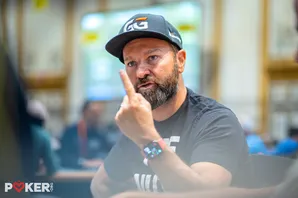Poker doesn’t get a lot of mainstream media coverage, but a Bloomberg article published on Friday has revealed the origins and extent of a Russian bot farm – and it’s caused a stir on poker Twitter.
The article – The Russian Bot Army That Conquered Online Poker – sees author Kit Chellel talk to the founders of the Bot Farm Corporation, an Omsk-based group that’s flirted with legitimacy, sold bots to poker sites for liquidity, and now wants to create a new rake-free model for online poker that pits players against house bots.
PokerOrg Player Advisory Board member Joey Ingram posted on X to say he "cannot believe these guys would out themselves in Bloomberg... Incredible reporting," while WPT ambassador Tony Dunst labelled it a “disturbing read.”
The article reports that by 2012, the Omsk group claimed they had built “probably the world’s most advanced poker-playing software and were deploying it profitably on every major poker website."
Under the name Neo Poker Lab, the group entered its bot into competitions and attempted to launch a poker training software business. Neo didn’t work out, and the group returned to the Bot Farm Corporation, starting a franchise model before selling its software as a mobile app in 2018. The scale of the operation was revealed through leaked transcripts on a Russian poker forum and Telegram. According to the Bloomberg report, the transcripts detailed "about 600 users with aliases such as Dallas and Zeon discuss overseeing accounts in Canada, China, India, Poland and Sweden, using virtual private networks or local SIM cards to disguise the operators’ real location."
The article also claims that under the name Deeplay, the group started selling bots to poker sites and clubs to provide liquidity, as well as anti-bot security to ensure they were the only bots on the tables. There's no claims that any of the large online poker sites had anything to do with Deeplay. Alex Scott, president of WPT Global, was quoted in the article saying, "You can’t run an online poker business without liquidity, and bots can provide that.” Scott added that while companies he worked for hadn't employed internal bots, he suspected smaller sites had.
The twist in the tale is that the Omsk group is now making another bid for legitimacy. They want to create a new model for online poker, where players are matched against house bots with similar skill levels. This would eliminate rake but create a game that’s like a casino game, with players against a house that could presumably dial up the bots’ skill levels whenever they wanted.
This is how poker Twitter reacted to the story.


















